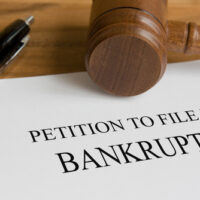What to Expect After Bankruptcy

Sometimes, filing for bankruptcy can be the best way to move on with your life and improve your creditworthiness. However, the rebuilding period can take time. Read on to understand what does and does not change after you file for bankruptcy, and what you can do to accelerate your financial recovery.
While your debts are erased, your credit score isn’t.
Depending on the type of bankruptcy you file—either Chapter 7 or Chapter 13—the debts that forced you into bankruptcy will either be discharged or recalculated so that your payments are lower. However, by the time you reached the point of needing to file for bankruptcy, you had likely experienced a serious dip in your credit score, which won’t be repaired with a bankruptcy filing.
Use a new credit card to repair your credit.
The best way to repair your credit score? Show creditors that you are now capable of paying your debts on time. Credit offers might flood in after you file for bankruptcy, but seem less appealing than what you’re used to seeing prior to bankruptcy—there may be high fees, low limits, and unfavorable interest rates. Do your research, and find a card available to those with poor credit to use to build your score. Use it to make everyday purchases, pay the balance each month, and never spend up to your credit limit. In time, your credit limit will be increased. The lower the amount of debt you carry compared with the amount of available credit, the better your credit score will be.
Keep an eye on your credit report going forward, to ensure they accurately represent your debts and creditworthiness.
Since it is more important than ever that your credit score is accurate as you work to improve it, use a credit monitoring service to ensure that your credit report is accurate (you can also request one free credit report each year from each of three main credit bureaus). Once a debt is either discharged or satisfied, it should no longer appear as a black mark on your credit. However, errors can occur leading to old debts continuing to appear as unpaid, or fraudulent transactions may appear. Contact the credit reporting agency right away if you notice these sorts of errors. Depending on the form of bankruptcy you file, your bankruptcy will appear on your credit report for 7 or 10 years. If the bankruptcy continues to appear after this time, you should also contact the credit reporting agency to ensure that it is removed.
If you have questions about whether you should file bankruptcy, and what effect it may have on your future, contact New York bankruptcy attorneys Rusk, Wadlin, Heppner & Martuscello at 845-331-4100 in Kingston or 845-236-4411 in Marlboro.
